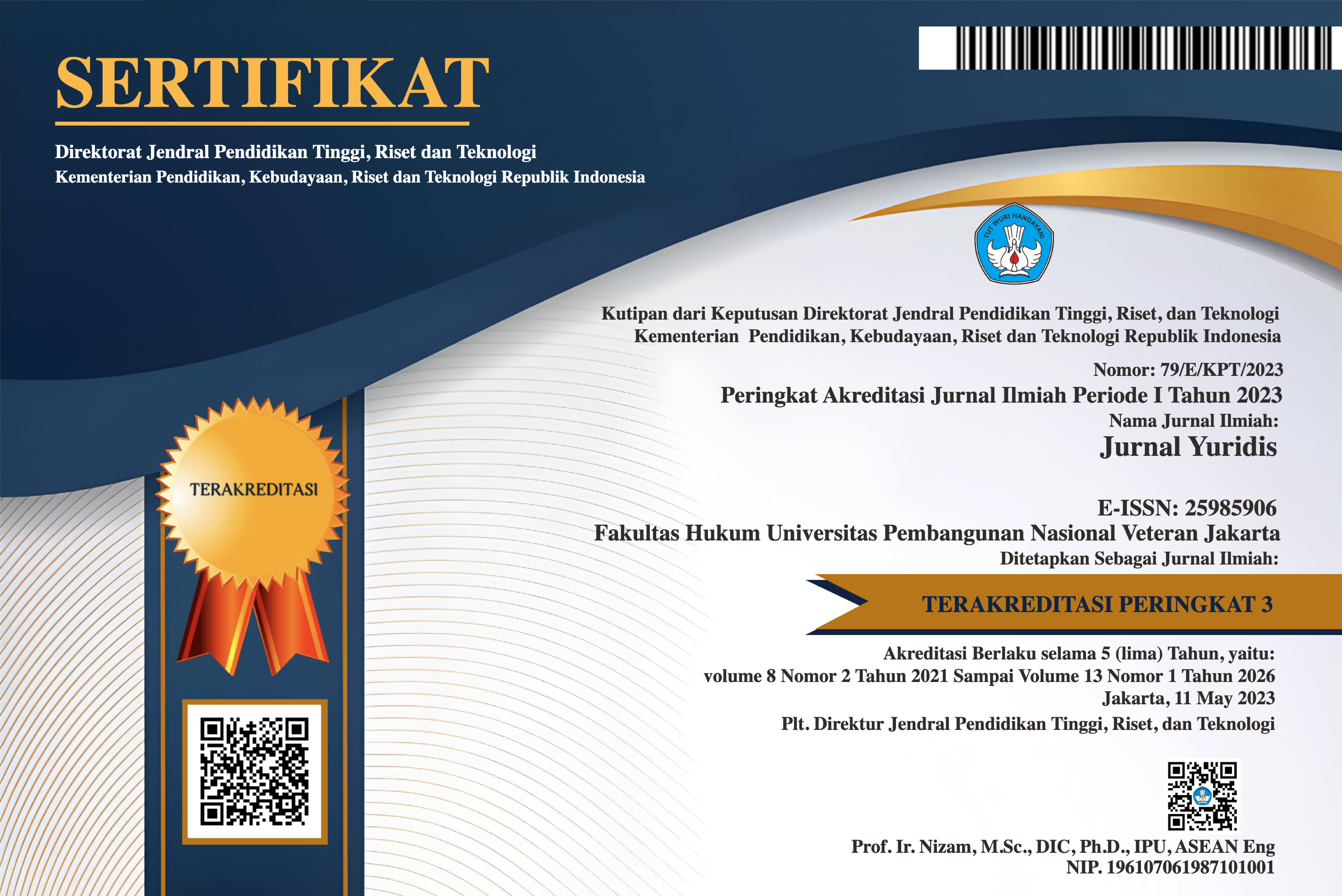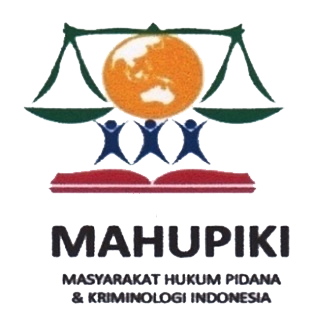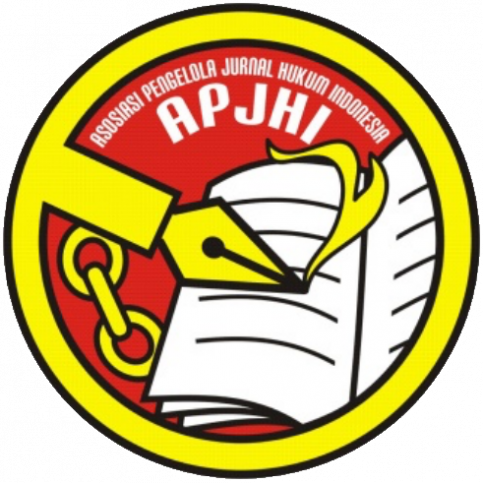ENHANCING THE CREATIVE ECONOMY : LEVERAGING INTELLECTUAL PROPERTY RIGHTS AS LEGAL COLLATERAL IN CREDIT FINANCING IN INDONESIA
DOI:
https://doi.org/10.35586/jyur.v11i1.7617Abstract
This research explores the newfound avenues for capital acquisition among creative economy stakeholders through banking institutions, leveraging intellectual property rights (IPR) as valuable collateral following the enactment of PP No.24/2022 in tandem with Law No.24/2019. Employing normative-empirical methodologies encompassing regulatory analysis, conceptual frameworks, and case studies, the study underscores the imperative for banking institutions to minimize risk exposure while extending credit facilities. PP No.24/2022 elucidates provisions within Law No.24/2019, offering creative economy actors opportunities to access credit capital by leveraging registered intellectual property assets. Notably, registration with the Director General of Intellectual Property Rights Center of the Ministry of Law and Human Rights confers state legitimacy on IP ownership. The intrinsic economic potential of intellectual property assets underscores their viability as collateral, prompting banking institutions to facilitate business capital loans, contingent upon adherence to legal protocols and due diligence. Integral to this process are adherence to regulatory standards, prudent risk management, and consideration of prospective debtors' credibility and economic viability. While collateralization remains pivotal, each bank exercises discretion in evaluating collateral based on individual assessments of prospective debtors. Furthermore, ongoing reviews within the banking and non-banking sectors aim to standardize policies concerning credit provision for creative economy actors. Key considerations include methodologies for valuing intellectual property, ranging from conventional cost, income, and market approaches to contemporary methods encompassing cost-benefit analyses, expert evaluations, and innovation surveys.
Published
Versions
- 2024-06-30 (2)
- 2024-06-30 (1)
How to Cite
Issue
Section
License
Copyright (c) 2024 Jurnal Yuridis

This work is licensed under a Creative Commons Attribution 4.0 International License.
Syarat yang harus dipenuhi oleh Penulis sebagai berikut:
- Penulis menyimpan hak cipta dan memberikan jurnal hak penerbitan pertama naskah secara simultan dengan lisensi di bawah Creative Commons Attribution License yang mengizinkan orang lain untuk berbagi pekerjaan dengan sebuah pernyataan kepenulisan pekerjaan dan penerbitan awal di jurnal ini.
- Penulis bisa memasukkan ke dalam penyusunan kontraktual tambahan terpisah untuk distribusi non ekslusif versi kaya terbitan jurnal (contoh: mempostingnya ke repositori institusional atau menerbitkannya dalam sebuah buku), dengan pengakuan penerbitan awalnya di jurnal ini.
- Penulis diizinkan dan didorong untuk mem-posting karya mereka online (contoh: di repositori institusional atau di website mereka) sebelum dan selama proses penyerahan, karena dapat mengarahkan ke pertukaran produktif, seperti halnya sitiran yang lebih awal dan lebih hebat dari karya yang diterbitkan. (Lihat Efek Akses Terbuka).
Jurnal Yuridis is licensed under a Creative Commons Attribution 4.0 International License.












